Get Inspired
How I Got Support for Possible CTE
Danny Halverson is a former semi-pro football player and amateur boxer navigating early onset dementia and possible CTE. Danny and his wife Dawn are sharing his journey to help encourage others who might be struggling to seek out treatment and to fundraise in support of CTE research and advocacy.
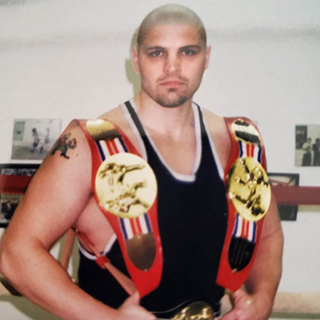
Click here to donate to Danny's fundraiser in support of CLF.
Warning: this story contains mentions of suicide and may be triggering to some readers.
Posted: May 10, 2021
By, Danny Halverson
How I Got Here
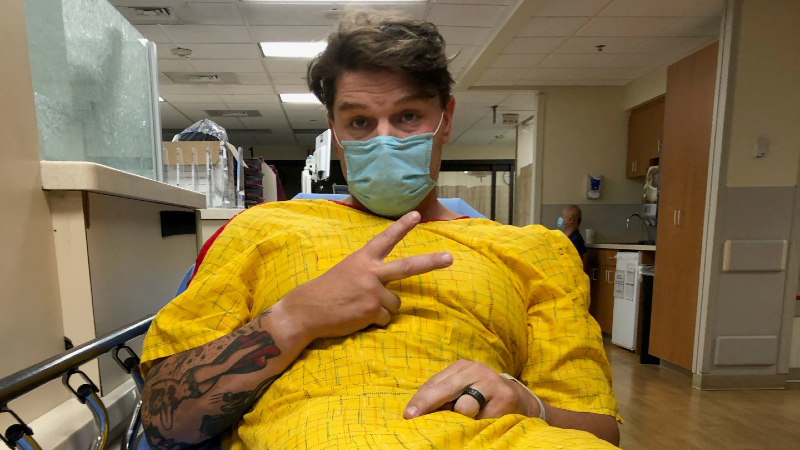
My symptoms started in June 2012. At first the changes were subtle and hard to notice. It began with occasional suicidal ideation then progressed to a deep depression. Those were my first signs that something was wrong.
I saw a psychologist and psychiatrist and started taking medication in 2013 to manage anxiety and depression. I suspected, based on research that I had done on other former football players and fighters, that I might be dealing with the long-term complications of brain trauma.
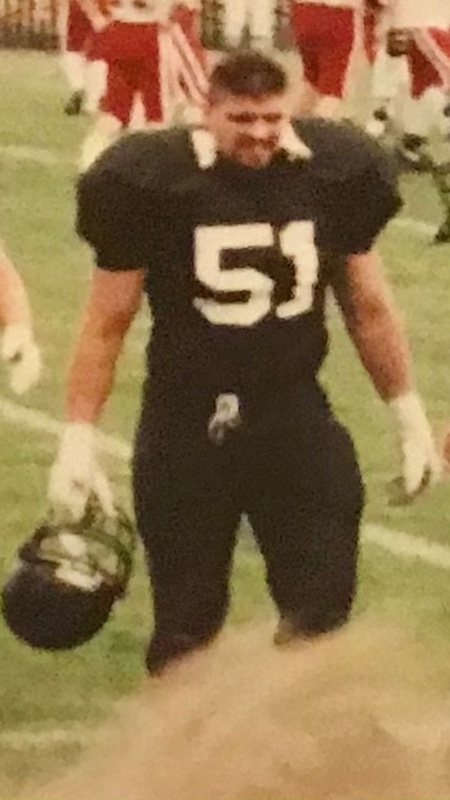
Looking back on my athletic career I remember at least 12 concussions, plus tens of thousands of sub-concussive hits to the head. I played football growing up in Illinois and went on to play semi-professionally for the Lake County Knights from 1992-1996. I was also an amateur boxer. I had 10 amateur bouts and landed four professional fights. In hindsight I wish I stuck to body building and Brazilian Jiu Jitsu to avoid head trauma, but I didn’t know any better back then.
When I started getting treatment in 2013, I tried numerous antidepressants and anxiety medications. Unfortunately, one of the side effects of one of the medications I tried was suicidal ideation, which I was already battling.
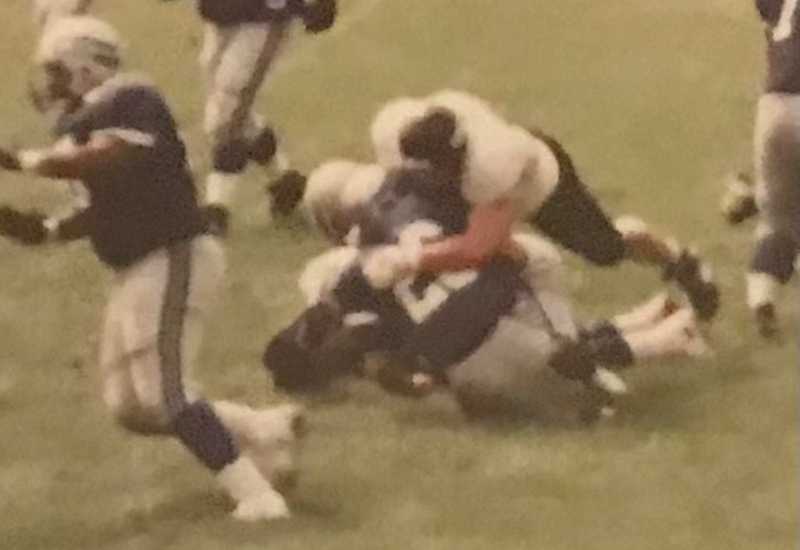
It’s difficult to share this now but in 2014 I tried to take my own life. It really changed how I looked at what was happening to me. I knew I seriously needed help and kept trying to find the right care. I went to more doctors, psychologists, neuropsychologists, and neurologists trying to understand what was going on. With support from family and friends, and regular medical care, I made some strides and maintained focus on my career.
Then, in 2017, I started noticing cognitive issues and short-term memory loss. I took several memory tests with doctors showing a significant decline in my short-term memory and cognitive function. Eventually, after years of tests and treatments, I was diagnosed with early onset dementia and possible CTE.
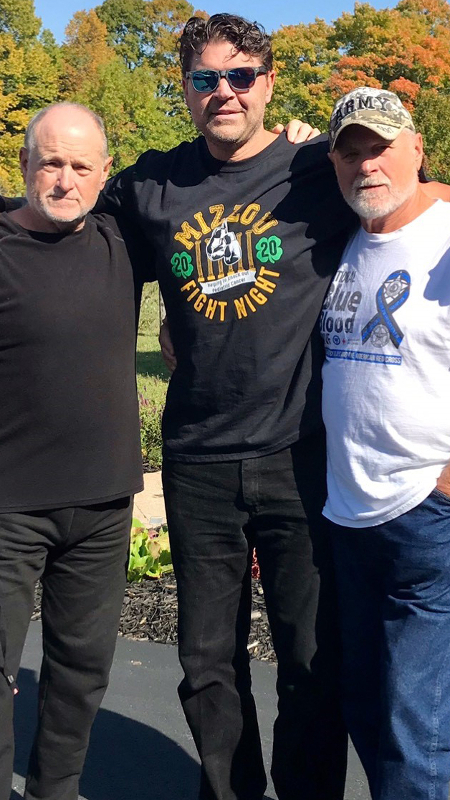
For a time, I was somewhat stable. I had a name for what was happening to me. It wasn’t good news, but at least I could make sense of it. Then I hit a wall that led to a six-day stay in the geriatric mental ward at Alexian Brother’s Hospital Hoffman Estates. I went there because I felt like I was dying. I couldn’t explain it then, but I know now I will never forget that day. October 5, 2020. I wasn’t sure if I would ever leave the hospital. But looking back now, I am so glad I went.
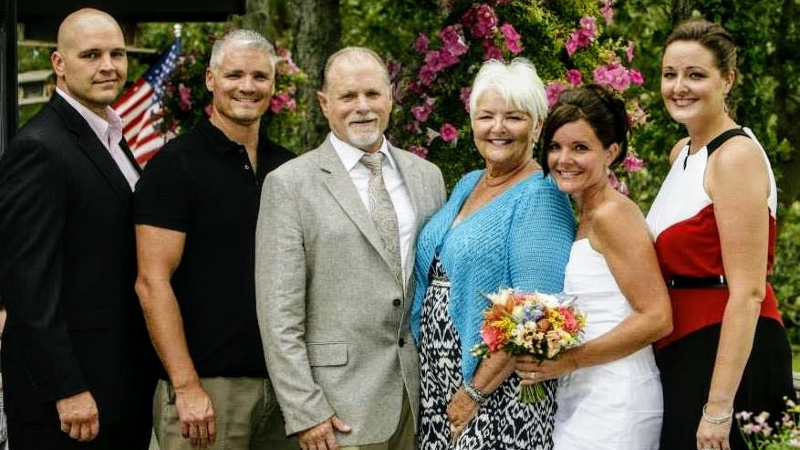
The doctors listened when I told them how I felt, and they adjusted my medications and treatments. For the last five months or so I have felt constant improvement. I do as much research as possible trying to slow the progress of the illness. If it is CTE, I’m going to fight it and I’m going to help as many people as I can along the way by sharing my story.
Living with Possible CTE
The biggest challenge is just dealing with things on a daily basis. Whether it’s going to the doctor, or having a tele-med appointment, or suffering from physical or mental symptoms; it’s a constant reminder that you’re sick. I’ve found though, that it is possible to take control of your symptoms, and mindset is key. You have to accept that you must keep managing symptoms and moving forward, because if you stop, the symptoms can take over.
It’s hard to manage everything that is going on in life knowing you’re battling something that hasn’t been beaten before. And I say it’s a challenge because I do want to beat it. There could be thousands of guys that are in a similar situation that are battling this without knowing what is going on. I feel for them. They may not know why what’s happening to them is happening.
Whether it’s Veterans, ex-football players, domestic abuse survivors, people with a TBI or PTSD, they all have similar situations with their own individual challenges. They handle them differently and cope differently. Unfortunately, there’s no single blueprint or game plan for how to get treatment or gain resources. It took me 10 years and going to the hospital to put together a game plan, execute the game plan, and take control of my health.
Coping with Symptoms and Staying Hopeful
I am grateful for my wife Dawn and the support of my family. One of the best tips I can share for someone who thinks they might be in a similar situation is to learn how to utilize your smartphone. It is a really useful way to cope with my decline in memory and cognitive function. My phone is essentially my super-computer. It’s my notebook, my journal, my appointment setter, my way to connect with doctors and people trying to help me. It helps others help me.
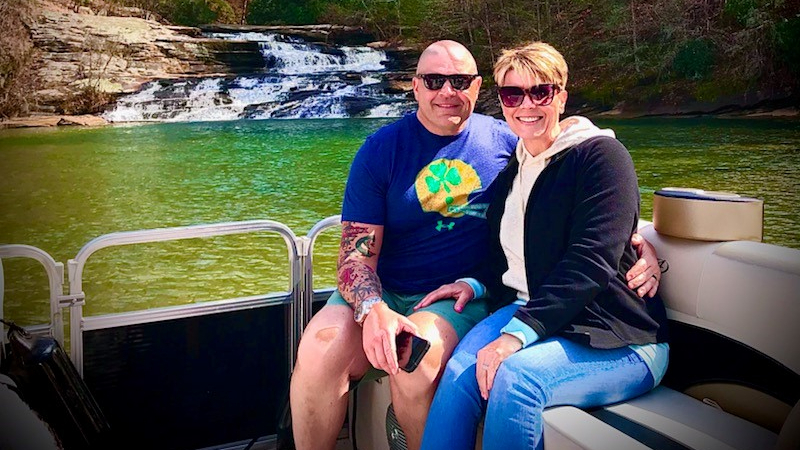
My phone lets me help others as well. I can’t help somebody every single day, but I can help others when I’m in a good place. My phone allows me to communicate with other people as quickly as possible when I’m feeling OK.
I’m holding onto hope that in the next few years there will be better diagnosis and treatment options for people with early onset dementia, and especially probable CTE. I’m doing everything I can to slow the progression of dementia, and the rapid pace of research coming out keeps me hopeful. The options for people like myself are improving, and strategies to improve quality of life by addressing CTE symptoms do help.
If somebody reading this thinks they could be dealing with CTE symptoms, please reach out to get help immediately. Nobody is going to do it for you. Unfortunately, some people are inherently afraid of the stigma surrounding mental health. It’s different when somebody breaks their leg – people jump up to help immediately. When someone is dealing with a head injury, a TBI, PTSD, depression, anxiety, or any other mental illness, there is not as much proactive help.
Anybody who suspects they have CTE, whether you are struggling with depression, thoughts of suicide, mood issues, compulsivity, anything you’ve seen as far as a change negatively in your cognitive or behavior and you have a history of head trauma, you need to reach out to somebody right away. A great place to start is with the Concussion Legacy Foundation Helpline. I encourage anyone to reach out to the CLF HelpLine where they will get you personalized support and connect you with doctors and clinics in your area to develop a treatment plan.
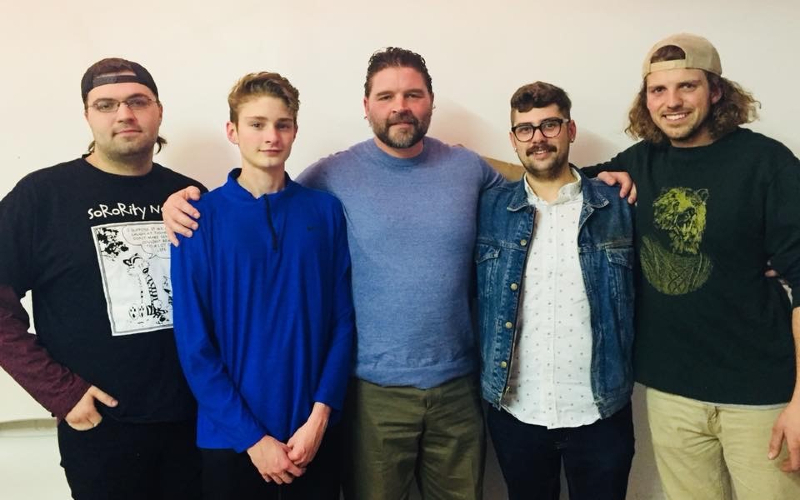
As far as being able to get help, whether it’s physical, mental, or cognitive, there are doctors who can treat your symptoms. If sharing my story means just one more person gets the help they need I’ll know I’m making a difference.
Click here to donate to Danny's CLF fundraiser.
If you are struggling to cope and would like emotional support, call the National Suicide Prevention Lifeline at 1-800-273-8255 to connect with a trained counselor. It’s free, confidential, and available to everyone in the United States. You do not have to be suicidal to call. Suicide is preventable and help is available. If you are concerned that someone in your life may be suicidal, the five #BeThe1To steps are simple actions anyone can take to help someone in crisis.
Are you or someone you know struggling with lingering concussion symptoms or suspected CTE? We support patients and families through the CLF HelpLine, providing personalized help to those struggling with the outcomes of brain injury. Submit your request today and a dedicated member of the Concussion Legacy Foundation team will be happy to assist you. Click here to support the CLF HelpLine.
You May Also Like
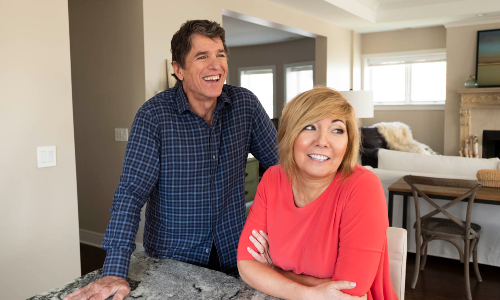
Living with suspected CTE can be difficult, but CTE is not a death sentence and it is important to maintain hope. Find out how.
Living with CTE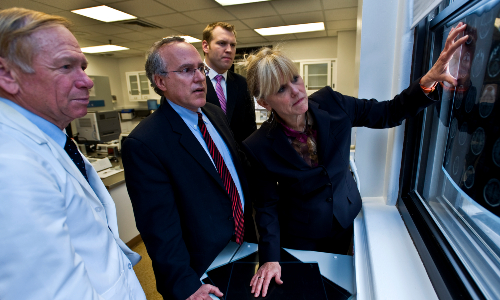
Although we cannot yet accurately diagnose CTE in living people, a specialist can help treat the symptoms presenting the most challenges.
CTE Treatments